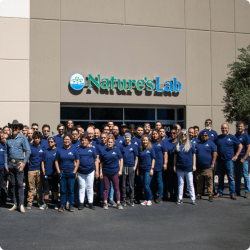

We hear a lot about flavonoids and how healthy they are for you, but what exactly are they and how do they work their wellness magic?* Check out this week’s article to learn more!

What are Flavonoids?

There are over 6,000 flavonoids in fruits, herbs, vegetables and medicinal plants. Often, flavonoids are pigments that provide color. They are crucial because they add to a plant’s defenses. Plants use flavonoids to protect themselves from outside stress such as lack of water, UV light, pests, bacteria, fungi.
Benefits of Flavonoids
Flavonoids possess a wealth of benefits for your health. In general, most flavonoids support heart health and healthy blood pressure already within normal range.* Specific types of flavonoids offer targeted benefits ranging from everything from improving skin tone to soothing the gut.*
What are Bioflavonoids?
Bioflavonoids and flavonoids are essentially the same thing, a phytochemical found in plants that possesses antioxidant activity. You’ll often see citrus bioflavonoids listed in supplement ingredients. Citrus bioflavonoids from grapefruit, oranges and lemons include hesperidin rutin and naringen among many others. Citrus bioflavonoids may promote the absorption of vitamin C and enhance its antioxidant activity even more so than if you were to take vitamin C on its own. Research shows citrus bioflavonoids exert a positive effect on the structure of the blood vessels which can contribute to healthy blood pressure levels. Just like any part of the body, blood vessels can age, leading to stretching, twisting, leaky valves and other issues. Citrus bioflavonoids can help with not only larger blood vessel health but capillaries promoting healthy circulation throughout the body. We utilize these beneficial flavonoids in Super Vitamin C to enhance the antioxidant benefits of vitamin C along with another flavonoid, quercetin.*
The Unique Benefits of Flavonoid Quercetin

Bioflavonoids such as quercetin are found in garlic, onions, and other fruits and vegetables. Quercetin has the distinction of being one of the most powerful flavonoids in terms of its ability to neutralize free radicals. It also has unique properties that lessen the body’s response to histamine. We pair quercetin with the pineapple enzyme bromelain to enhance absorption in our Quercetin Bromelain formula. You’ll also find this anti-inflammatory flavonoid in our Super Vitamin C and Immunity Plus supplements.
Anthocyanins: Flavonoid Pigments

Anthocyanins are plant pigments that are responsible for the beautiful shades of purple, blue and red found in fruits and vegetables. Berries, grapes and cherries are abundant in anthocyanins. These plant pigments are associated with healthy blood pressure levels. They are also a useful tool in managing inflammation from external sources such as physical activity, sunlight and other stressors. Nature’s Lab Tart Cherry leverages the benefits of anthocyanins in capsule form. Tart cherry studies show that they promote efficient muscle recovery after intense exercise and can enhance joint mobility.* Elderberries with their deep purple, almost black color contain some of the highest amounts of anthocyanins of any berry. Their ability to neutralize damage from inflammation is one reason they promote immune cell longevity. You can find elderberry in Nature’s Lab Immunity Synergy where it is paired with other immune-supporting nutrients.*
Anti-Inflammatory Catechins

Catechins are a type of flavonoid found in herbs, apples, sweet potatoes, red wine, dark chocolate and many other food sources. They are known for soothing inflammation within the digestive tract and quenching the activity of reactive oxygen species which can make molecules unstable. Green tea contains epigallocatechin gallate (EGCG), a type of catechin that may have use for metabolism and weight management.* Norepinephrine is a hormone that tells our body to use fat as energy. EGCG can prolong the activity of norepinephrine which may lead to superior weight management.* A cup of green tea or matcha typically provides 50-100 mg of EGCG. When you don’t have time to brew a cup, reach for Nature’s Lab Green Tea Extract which contains 500 mg of bioavailable green tea extract in one capsule.
Getting More Flavonoids
There is no specified daily value for flavonoids, but there’s no doubt that they can benefit your wellness.* Flavonoids are a simple and delicious way to promote heart health, circulation, immune function and antioxidant health.* Choosing foods with richly-saturated hues is one way to ensure you are including these beneficial plant compounds into your diet. Herbs, vegetables, fruits and wine are just a few items you can put on your menu. Of course, Nature’s Lab has countless supplements that feature healthy flavonoids making it even more convenient for you to fit into your daily routine.
Shop our Collection of Quality Supplements
References
Fan, F.-Y., Sang, L.-X., Jiang, M. (2017, March 19). Catechins and their therapeutic benefits to inflammatory bowel d—---. Molecules (Basel, Switzerland). Retrieved December 27, 2022, from https://www.ncbi.nlm.nih.gov/pmc/articles/PMC6155401/
Panche, A. N., Diwan, A. D., Chandra, S. R. (2016, December 29). Flavonoids: An overview. Journal of nutritional science. Retrieved December 27, 2022, from https://www.ncbi.nlm.nih.gov/pmc/articles/PMC5465813/
Adams, H. (2021, November 23). The best flavonoid-rich foods you can eat. Clean Eating. Retrieved December 27, 2022, from https://www.cleaneatingmag.com/clean-diet/food-health-news/the-best-flavonoid-rich-foods-you-can-eat/
Cleveland Clinic. (2022, June 29). Got anthocyanins? add more purple to your plate! Cleveland Clinic. Retrieved December 27, 2022, from https://health.clevelandclinic.org/anthocyanins/
Gao, R., Chilibeck, P. D. (2020, January 27). Effect of tart cherry concentrate on endurance exercise performance: A meta-analysis. Journal of the American College of Nutrition. Retrieved December 27, 2022, from https://pubmed.ncbi.nlm.nih.gov/31986108/
Zhang, Y., Yu, Y., Li, X., Meguro, S., Hayashi, S., Katashima, M., Yasumasu, T., Wang, J., Li, K. (2012, January 20). Effects of catechin-enriched green tea beverage on visceral fat loss in adults with a high proportion of visceral fat: A double-blind, placebo-controlled, randomized trial. Journal of Functional Foods. Retrieved December 27, 2022, from https://www.sciencedirect.com/science/article/pii/S1756464611001162
Chen, S., Osaki, N., Shimotoyodome, A. (2015, April 4). Green tea catechins enhance norepinephrine-induced lipolysis via a protein kinase A-dependent pathway in adipocytes. Biochemical and biophysical research communications. Retrieved December 27, 2022, from https://pubmed.ncbi.nlm.nih.gov/25849890/







